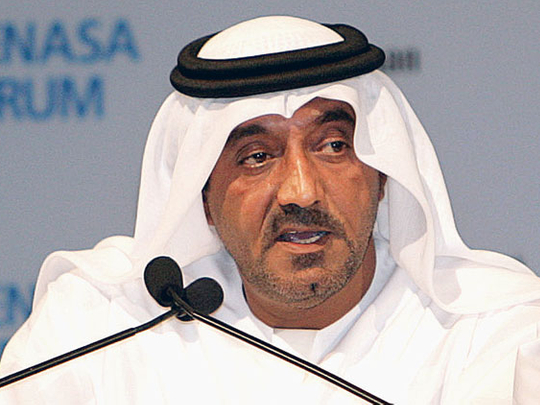
Dubai: The Dubai government will set up a Debt Management Office, in line with a similar set-up at the federal level while strengthening the insolvency law which will address vulnerabilities in its financial system, a top official said.
Shaikh Ahmad Bin Saeed Al Maktoum, president of Dubai Civil Aviation Authority, chairman and chief executive of Emirates airline and Group and chairman of the Supreme Fiscal Committee in Dubai yesterday told delegates at a conference that the UAE government is taking steps to improve the country's legal and regulatory infrastructure.
"At a federal level, urgent steps are being taken to address the gaps in the UAE's legal and regulatory infrastructure. The government is set to issue a public debt management law later this year. Following this, it will establish a debt management office to coordinate the raising of debt for government-related entities. A similar debt management unit is planned to be set up in Dubai to centralise debt decision making," he said at the Middle East, North Africa and South Asia (Menasa) Forum, which was held at the Dubai International Financial Centre (DIFC) yesterday. The two-day event is being attended by more than 250 top bankers and heads of financial institutions.
"Another measure is the modernisation and reform of the UAE's insolvency framework, which we are addressing as a policy priority. A clear framework for the financial restructuring and reorganisation of companies, based on international principles, is being put in place," he said.
Vulnerabilities
"In order to be better prepared for the future, the Supreme Fiscal Committee, set up to oversee Dubai's fiscal policies, is establishing a comprehensive programme to address vulnerabilities in our financial system."
Referring to Dubai's core strengths and the challenges it faces, Shaikh Ahmad said,
"Here in Dubai, the measures we took a few months ago to restructure the debt of government related entities are part of our commitment as a global financial leader to transparency, good governance, and the highest market principles."
The Dubai government's restructuring proposal for Dubai World's debt was widely welcomed by local and international markets, he said.
"The proposal demonstrates Dubai's commitment to ensuring the success of government-related entities while at the same time treating both foreign and local creditors equitably and fairly."
The measures taken by Dubai in the past few months have created renewed confidence among global financial institutions, he said.
"What secures Dubai's growth over the long term is its strong fundamentals — its sound infrastructure base, well-entrenched position as a global and regional business hub, its location between Europe and Asia and at the centre of Menasa and most importantly — the vision and commitment of its leadership," Shaikh Ahmad said.
Restoration
"The potential that Dubai holds for a quick restoration of high growth mirrors the vast promise of the Menasa region. The region has clearly demonstrated its ability to get back on the high-growth track. However, we need to continue our focus on improving systemic issues. If left unaddressed, they can hold us back from a robust growth path."
A strong rebound in emerging market economies is proving to be a key engine of global recovery and growth. The introduction of policies promoting liberalisation, private sector participation and global integration have provided a powerful impetus for growth.










